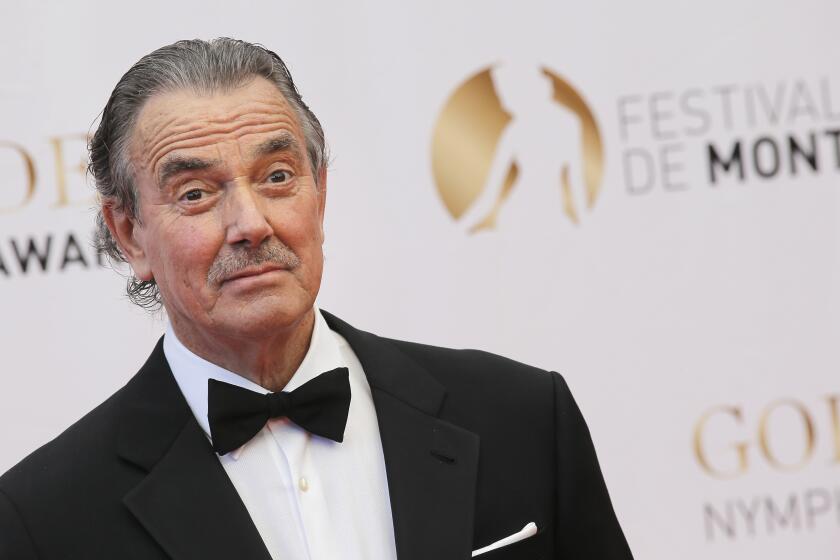‘One Day at a Time’ writers walk through pivotal episode
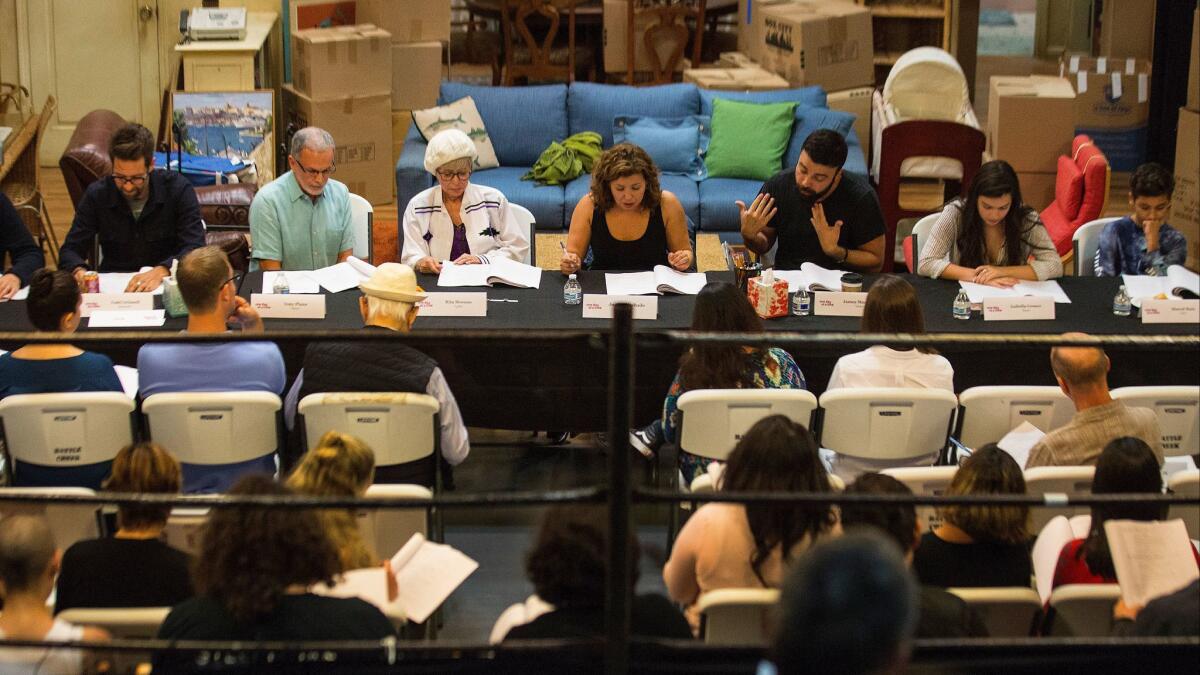
Squabbles between parents and their kids are inevitable in family-centric TV series. But one playing out in season 2 of Netflix’s “One Day at a Time” has Rita Moreno crying — when the cameras weren’t even rolling.
The cast and writers of the multi-camera sitcom, a reimagining of the 1975 Norman Lear family comedy, gathered inside a soundstage on the Sony Pictures lot in Culver City one weekday last summer to read the eighth episode of the new season. And, well, things got emotional.
For the uninitiated, the revamped version of the series is set in Echo Park and revolves around the Alvarez family: Penelope (Justina Machado) is a war veteran and single mother of two children, Elena (Isabella Gomez) and Alex (Marcel Ruiz). Moreno plays Penelope’s meddling mother who lives with them.
Much like its predecessor, the reboot doesn’t let its funny bone deter it from tackling uncomfortable and sensitive issues. The first season was lauded by fans and critics for its depiction of a teenager (Elena) figuring out her sexuality and, eventually, coming out to her family, a dramatic turn that took on more resonance because of cultural taboos and rigid gender roles in the Latino community.
Each family member processed the revelation in his or her own way, culminating in the final episode of the first season, which saw Elena stranded on the dance floor at her quinceañera just as the father-daughter dance was about to get underway. Her dad, Victor (James Martinez), couldn’t deal with the news.
That leads us to this moment on the lot that has Moreno, and others, reaching for a tissue.
Titled “What Happened,” the eighth episode of the second season explores the aftermath of the emotional cliffhanger. Nearly a year has passed since Elena and Victor have spoken. After learning her brother has secretly been meeting with their father, a dejected Elena confronts her dad with a headstrong, emotional monologue.
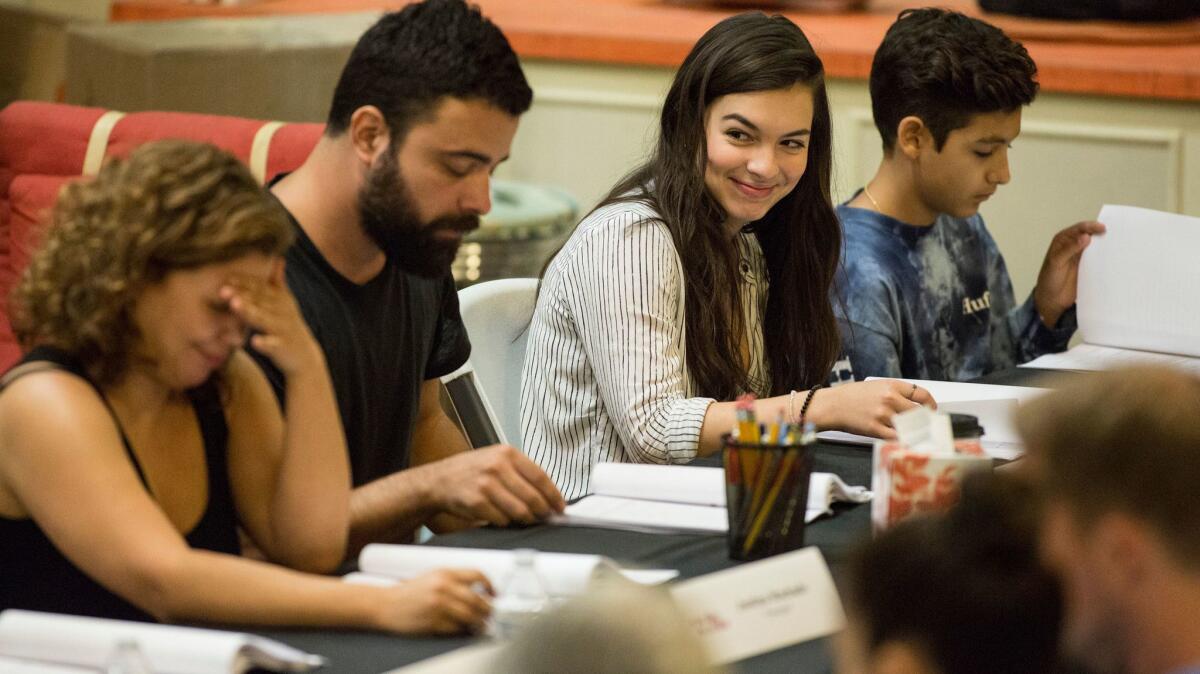
“You taught me a valuable lesson — the fact that I’m gay means a lot of people hate me without knowing anything else about me,” she tells him. “I kind of always knew that was part of the deal; I never expected it from my own father.”
The episode is also flashback-heavy, exploring the time around Elena’s birth, which includes looking at September 11, 2001, and how that day affected the family.
The Times paid a visit to the show’s writers’ room later in the day to get the story behind the episode from the show’s co-creators Gloria Calderon Kellett and Mike Royce, and the rest of the writing staff: Michelle Badillo, Dan Hernandez, Sebastian Jones, Caroline Levich, Becky Mann, Andy Roth, Benji Samit, Audra Sielaff and Debby Wolfe. (Dan Signer, also on staff, was not in attendance for the discussion.)
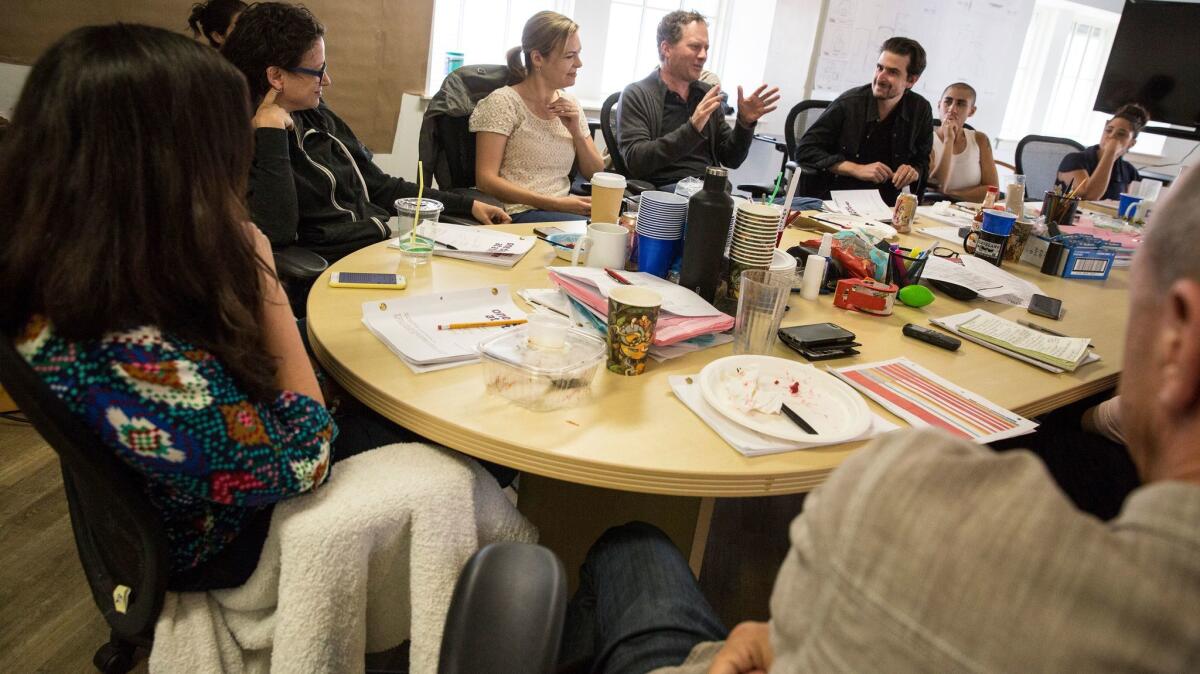
Episode 8, “What Happened” (written by Sebastian Jones and Andy Roth)
Sept. 11
Calderon Kellett: We had a natural way in because we know when Elena was born. We established that last season. So, it was, like, "Oh, 9/11 happens a month later. How would that have affected this family?" Then hearing that the veterans come in [to the writers’ room] last season, talking about what was their reason for enlisting, a lot of them, it was 9/11. That's why they went in. That's where the call came.
In looking at what we had already set up for this family, Victor and Penelope had already enlisted prior to that and met. And now they were coming out of that and starting a family. And we thought maybe it would be powerful if they decided to go back in because of the training they got — especially Victor. Then see how the choices he made then and the choices made [since] have played out.
Royce: Not to overstate it, but 9/11 would have destroyed this family. They were in a peacetime military and then they were suddenly [in] wartime. And obviously Victor and Penelope both have PTSD, and Victor maybe is not dealing with it correctly, so that that would have, in its own way, had an effect on the family. And we want to do something about that. And, yeah, we needed to pay off the Victor-Elena storyline.
Mann: I think we definitely wanted to handle the 9/11 aspect of it very carefully and respectfully, and not be emotionally manipulative with it. But it made so much sense that it would have an emotional impact on this family. We have people on staff who were in New York or are from New York, and were there at the time, so we just wanted to make sure that we had a deft touch and really did it justice.
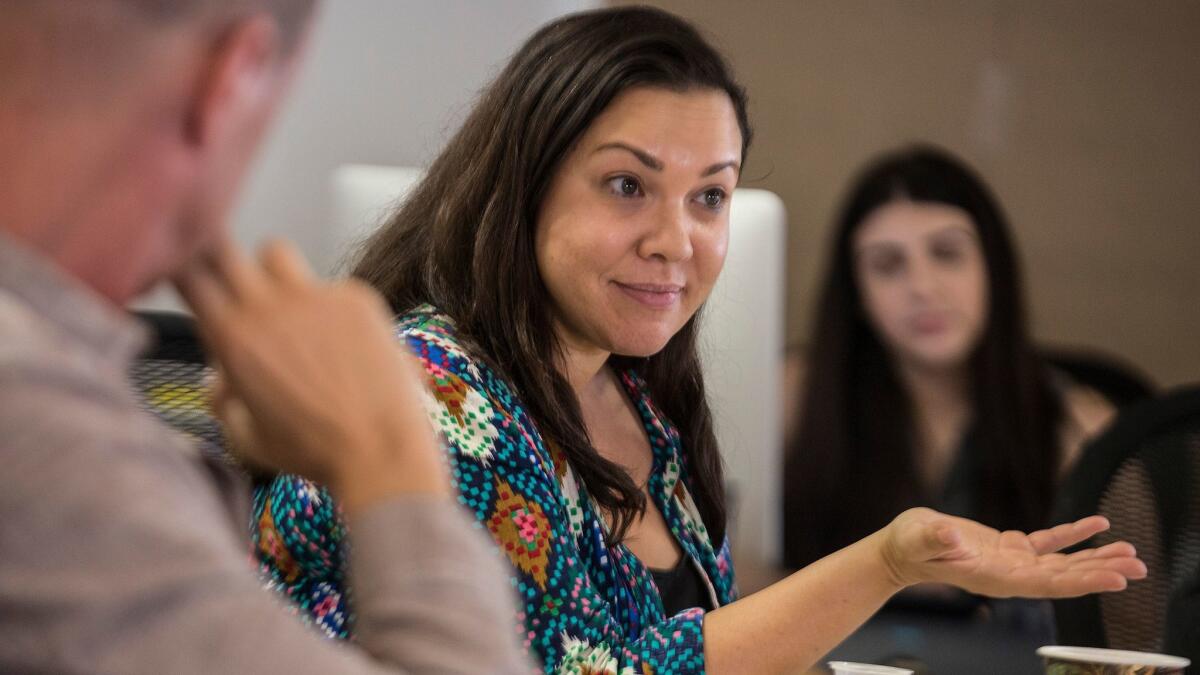
Connecting it to the present
Royce: I believe it was Dan Signer that suggested the very reason Victor would have wanted to reenlist would be somewhat ironic in the face of what he's now doing with Elena.
Calderon Kellett: We talked about never seeing Victor again. But, we felt like, for the fans, we would want to give them some sort of baby step, like even this episode he's not gonna be totally there. But he still loves his kid, and that's what we want to put forth in this episode. That he’s sorry for the way he handled it, which does seem to be true of parents even when they do it right — that there's something they wish they had done better.
So, yeah, giving him some sort of mini-resolution.
Royce: I don't think there was ever an argument about it, but I think some of the big discussion was just, how much do we want Victor and Elena to have a moment? And what is that moment? Because we don't want it to be easy, and we don't want an easy resolution where he's suddenly magically enlightened, which we're certainly not doing here. But, at the same time, recognize that he hurt his daughter, and that he has a little bit of redemption. The nuances of that continue to be a discussion.
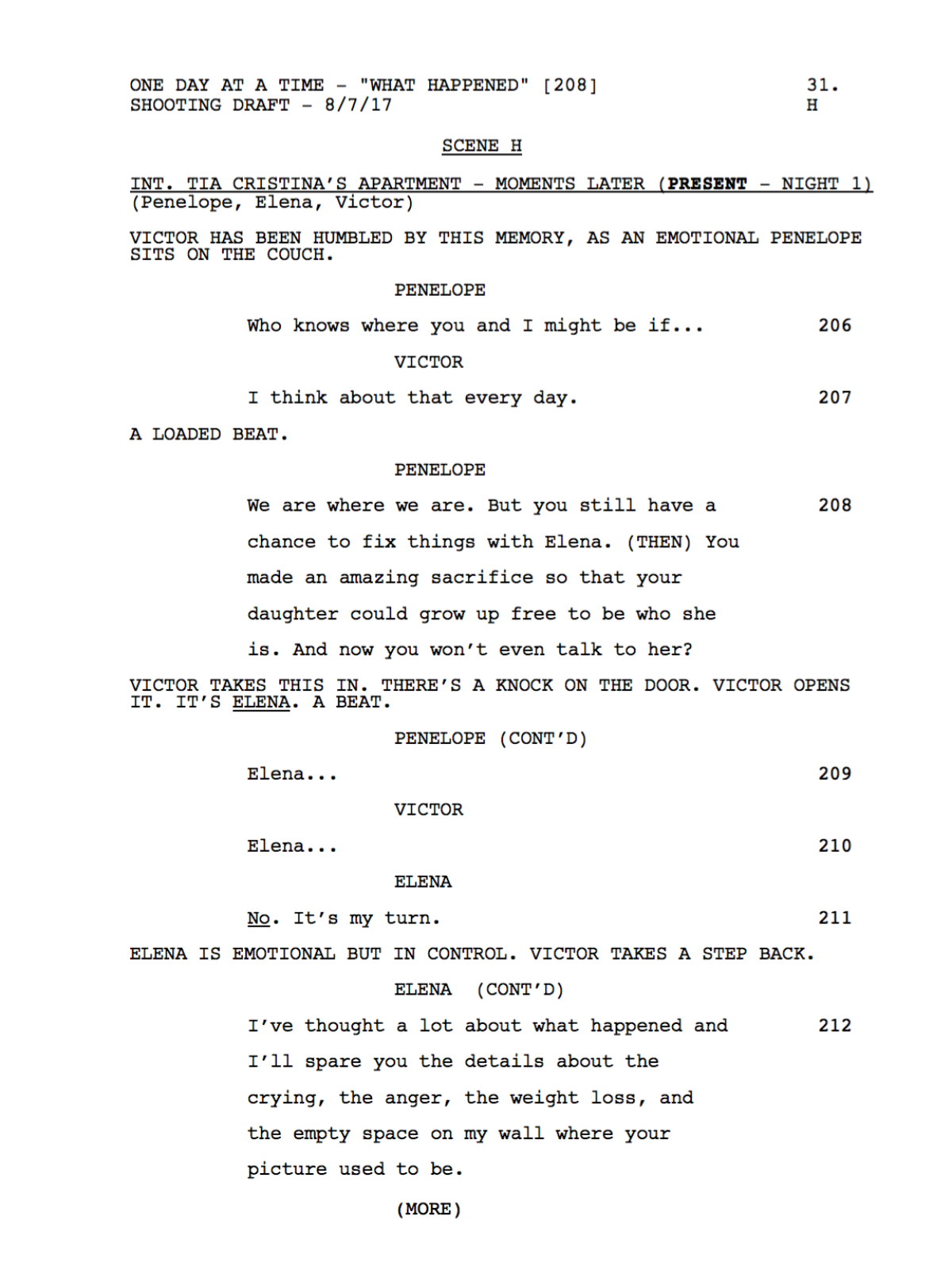
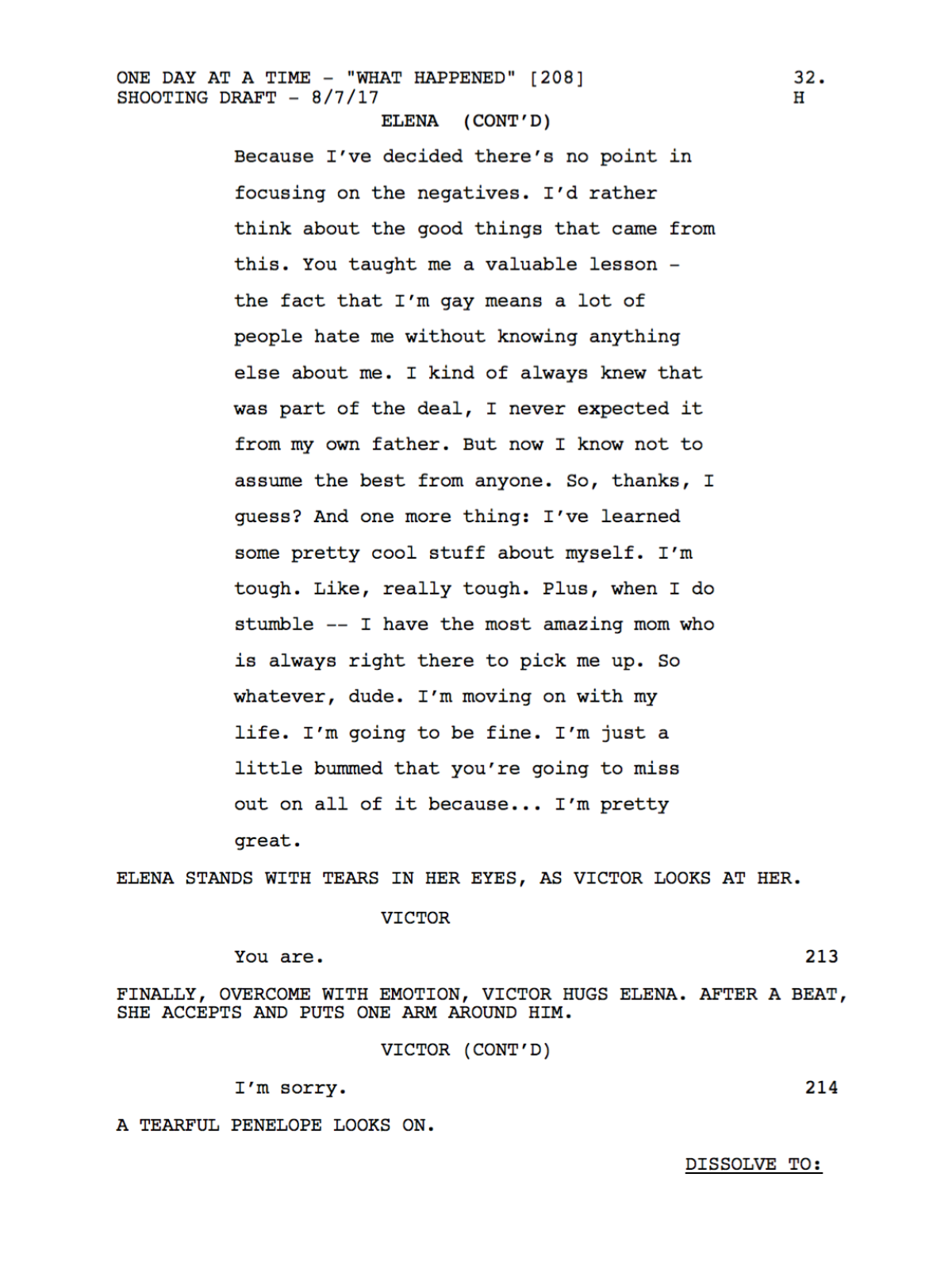
Elena’s speech
Badillo: If this is real life, this is something she probably thinks about every day. So I'm sure she's done a version of this speech in her head every day before she goes to sleep, every morning when she wakes up. So, I think we really want her to have that moment and it was more important for us to see her have her moment than it was to see him have his moment.
Yeah, we want to see that the needle has moved a little bit with him, but we don't really need to hear it. The topic's really about her saying her peace and getting her thing out.
Jones: We've gone through a number of drafts of it. To me, because I did a pass at it, [Elena] had gone through this over and over in her head. And there’s that difference between what you say in your head and how it affects you when you actually say it out loud.
Wolfe. Underneath all of it is a layer of "I miss my daddy. I want my daddy." She's still a 15-year-old girl. So, I think that while she's giving this powerful speech, there is that underlying layer.
Calderon Kellett: Victor is making it about himself, making it about what people are gonna think of him as a father, and as a person. I don't care as much about his journey; I really care more about [Elena’s].
So I don't know if we're gonna investigate his journey more but certainly having it there to represent that Latino masculinity that is still very prominent is important and having him come part of the way [to understanding] hopefully speaks to ... these guys.
Hernandez: Victor’s perspective is important in relation to Alex's ongoing understanding of his own masculinity and his own place within the culture. It was important to show different types of masculine identity and how difficult it can be for someone who is growing up in a more progressive home as a Latino male than maybe his dad or his grandparents or whoever [did].
Maybe they have more old-school sensibilities, but [Alex] is making his own calculations and decisions about where he fits into this and what his worldview is and ultimately expressed by the fact that he was trying to get his dad to kind of come along, and that was important.
So I think maybe there's been a tendency in the past to sort of ... homogenize what the Latino male experiences, and I think we're trying to complicate that and say there are shades and iterations of that, and it's changing constantly. Especially for younger people.
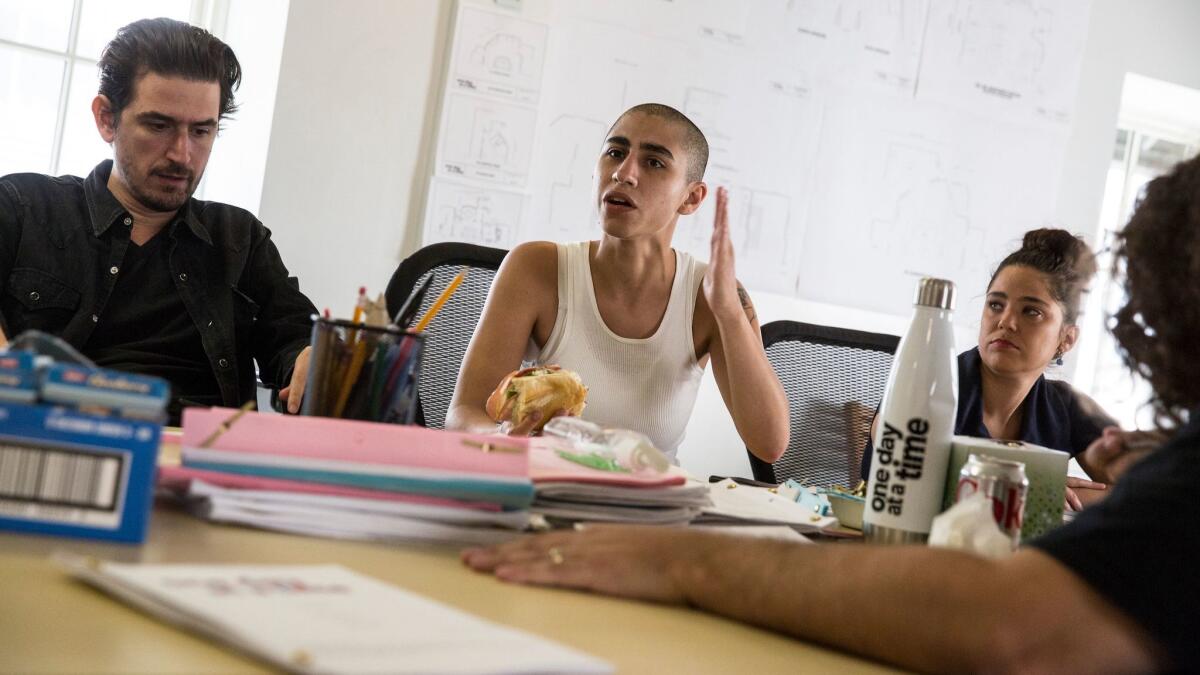
Deciding who we’d see in the flashback ...
Calderon Kellett: One discussion we had was whether Schneider (Todd Grinnell) and Dr. Berkwowitz (Stephen Tobolowsky) should be in the episode. There was a lot of discussion about that — did it make sense? Would it feel forced? But I like how it all came together.
Royce: We wanted to have our fun, but we also wanted to make sure they didn’t get in the way.
Sielaff: And I feel like Schneider’s Mark McGrath-Sugar Ray look wasn't even something anybody really came up with it.
Hernandez: It just was so obviously correct that we all knew intuitively.
Jones: Also part of the discussion was Berto (Tony Plana). He's obviously not alive anymore, so this is a chance to actually see him and see him interact with everyone, and so you want to use that as much as possible to see how loving he was with Lydia, how supportive [he was] of the crazy things that his wife says.
The complete guide to home viewing
Get Screen Gab for everything about the TV shows and streaming movies everyone’s talking about.
You may occasionally receive promotional content from the Los Angeles Times.


